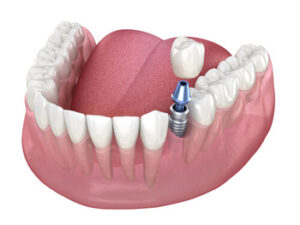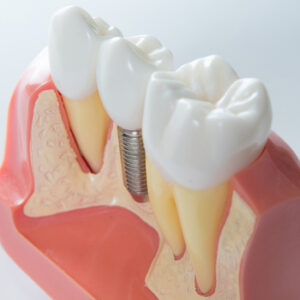When considering dental implants, Australians often explore various options, including the idea of travelling to Turkey for treatment. While dental implants in Turkey may seem appealing due to their lower costs, weighing the risks and potential long-term dangers before making such a significant decision is crucial.
In this article, we’ll tap into the world of dental implants in Turkey, exploring the pitfalls and why Australia stands as the ideal choice for Australians seeking high-quality dental care.
5 Life-Threatening Risks Of Dental Implants In Turkey
1. Subpar Quality And Materials Used
One of the primary risks associated with getting dental implants in Turkey is the variance in quality and materials used. While some clinics may promise high-quality dental implants, the reality can differ. Substandard materials may not only compromise the appearance of your smile but can also pose health risks in the long run.
2. Lack of Oversight And Regulation
Dental procedures, including implant surgeries, require meticulous precision and adherence to safety standards. In Australia, dental professionals are held to rigorous regulatory standards. However, dental implants in Turkey may have a different level of oversight and regulation, increasing the risk of complications during and after the procedure.
3. Inexperienced Dental Practitioners
The experience and qualifications of the dental practitioners who perform the implant surgery play a significant role in its success. Turkey’s allure as a dental tourism hub means that not all practitioners may possess the necessary expertise. Choosing an inexperienced dentist can lead to a higher likelihood of complications and the need for costly revisions.
4. The Lure of Low Prices
The initial allure of lower dental implant prices in Turkey can be tempting, but it’s essential to be wary of hidden costs. Additional expenses, such as follow-up treatments, corrective procedures, and travel-related costs, can quickly accumulate, negating the initial cost savings.
5. Rushed Procedures And Lack Of Follow-Up Care
Some clinics in Turkey may promote “immediate dental implants” with the promise of same-day results. While this may sound convenient, it often involves rushed procedures that skip crucial steps like proper healing and osseointegration. Immediate implants can compromise the long-term success of the treatment.
Compromising the quality of dental treatments in Turkey is a common practice among dentists there. If you’ve been keeping up with the news, you may have heard about the two Irish patients who died right after receiving their dental treatment in Turkey. Or, perhaps you’ve heard about the three British men who took over major news headlines, with one eventually dead and the other two critically ill.
Immediate dental implants may not allow for sufficient healing time, leading to complications down the line. Additionally, receiving proper follow-up care in Australia after returning from Turkey can be challenging, potentially leaving you without the necessary support during the crucial healing period, which is not the best dental treatment you’d want.
7 Must-Know Reasons To Choose Australia Over Turkey’s Dental Clinics
Choosing Australia for your dental implant treatment offers several compelling advantages that outweigh the potential risks of getting implants in Turkey.
In the following sections, we’ll explore why Australia is the best option for Australians seeking high-quality dental implant procedures.
Australia stands as a beacon of excellence in dental care, offering numerous advantages that make it the superior choice for dental implant procedures.
Here, we explore why Australians should consider their own shores for dental implants.
1. High-Quality Dental Care
Australia is known for providing high-quality dental care while adhering strictly to worldwide dental standards. Dental experts in Australia get extensive training and education to ensure that patients receive the best possible treatment.
2. State-Of-The-Art Dental Facilities
Australian dental clinics are equipped with state-of-the-art technology and modern facilities. This includes advanced imaging, computer-guided planning, and cutting-edge dental equipment and tools. These resources enhance the precision and success of the implant procedure, offering patients the best possible outcome.
3. Long-Term Success And Follow-Up Care
Choosing Australia for your dental implants means you can access comprehensive follow-up care. Regular check-ups and maintenance are essential to ensure the long-term success of the implant. Australia’s proximity allows for convenient follow-up appointments, ensuring that your dental health remains a top priority.
4. Transparent Pricing
In Australia, you can expect transparent pricing for your dental implant procedure. There’s no hidden dental implants cost, as reputable Australian clinics provide a detailed breakdown of the treatment cost. This transparency allows you to allocate your budget confidently.
5. Quality Materials And Implant Brand
Unlike the case with Turkey, Australia utilises high-quality dental materials and reputable dental implant brands. This ensures the durability and longevity of your dental implant restoration, providing you with a smile that stands the test of time.
6. A Patient-Centred Approach
Australian dental clinics prioritise a patient-centred approach. Your comfort, well-being, and individualised care are at the forefront of the entire process. You can expect clear communication, answers to your questions, and a dentist who genuinely cares about your oral health.
7. Access To Payment Plants Or Insurance Coverage
Many Australian dental clinics offer payment plans or accept dental insurance plans for dental implant procedures. This can substantially reduce your out-of-pocket expenses and make high-quality dental implants even more affordable.
6 Major Types Of Dental Implants Used In Australia
Australia’s commitment to high-quality dental care extends to the variety of dental implant options available. Dental professionals in Australia offer various types of dental implants, each tailored to specific needs and situations.
Here, we explore the different types and their suitability.
1. Endosteal Implants
Endosteal implants are the most common and widely used type of dental implant in Australia. They are typically made of medical-grade titanium, known for its biocompatibility and strength. These dental implants are surgically placed directly into the jaw bone and serve as a solid foundation for dental prostheses.
Depending on the patient’s needs, endosteal implants can support individual crowns, bridges, or even dentures. Their versatility and reliability make them a popular choice for replacing missing teeth.
2. Subperiosteal Implants
Subperiosteal implants are an alternative for patients with insufficient bone density in their jaws to support traditional implants. Rather than being placed into the bone, subperiosteal implants rest on top of your jaw bone but beneath the gum tissue.
This type of implant supports dental prostheses and offers a less invasive option for patients who may not be a good fit for traditional implants due to bone density issues.
3. 4 Dental Implants
For patients requiring a more comprehensive solution for multiple teeth, using 4 dental implants can be a game-changer when many teeth are missing. These implants are strategically placed to provide a stable base for a full arch of teeth. It’s popular for those looking to replace multiple missing teeth in a single arch.
4 implants can support a set of teeth fixed in place, providing a comfortable and natural-feeling solution for patients with larger gaps in their smile. This approach minimises the need for removable dentures and enhances overall comfort.
4. 6 Dental Implants
6 dental implants are one of the greatest dental treatments for patients seeking even greater stability and support. These implants offer enhanced structural integrity, making them suitable for full mouth dental implant treatments. With 6 implants strategically placed, patients can enjoy the security of a fully restored smile.
6 dental implants provide a strong foundation for prosthetic teeth and are ideal for individuals with more extensive tooth loss who want to regain the look and function of their natural teeth.
5. Zygomatic Implants
Zygomatic implants are suitable for patients with severe bone loss in the upper jaw who might not be candidates for traditional dental implant surgery. Such implants are anchored in the zygomatic bone, which is the cheekbone, rather than the jawbone.
Zygomatic implants, often made of titanium, can support fixed or removable dentures for patients with limited options due to significant bone loss. Their placement requires advanced expertise.
6. Pterygoid Implants
Pterygoid implants are similar to zygomatic teeth implants used when the upper jawbone lacks sufficient density for traditional implants. These implants are placed in the pterygoid bone behind the upper jawbone.
Just like zygomatic implants, pterygoid implants provide stability for dental prostheses and are typically made of titanium. They are considered a valuable option for patients with complex cases of bone loss.
The choice of implant type depends on various factors, including bone density, the location of missing teeth, overall health, and your dentist’s recommendation. Australian dental professionals are well-equipped to assess your unique circumstances and provide recommendations to ensure the best possible outcome out of your dental implant procedure.
What You Get During Your Implant Dental Treatment In Australia
To make an informed decision about your dental health, it’s crucial to understand the intricate process of dental implant surgery in Australia.
Here, we provide a detailed overview of each step in receiving dental implants in this high-quality care destination.
1. Initial Consultation And Evaluation
Your road towards dental implants in Australia begins with an initial consultation, which is an important first step in ensuring your specific needs are addressed. You’ll meet with an experienced dentist who will dive into your oral requirements, objectives, and any concerns you may have during this consultation.
The dentist will review your detailed medical history to assess your suitability for dental implants. However, the heart of this evaluation lies in thoroughly examining your oral health. The dentist meticulously examines the condition of your gums and jawbone to determine their suitability for implant placement.
Advanced diagnostic tools, such as X-rays or cutting-edge 3D scans, may be employed to delve deeper into your oral anatomy. These imaging techniques provide critical insights into bone density and the optimal positioning of the implant. The information gathered during this comprehensive evaluation serves as the bedrock for crafting a personalised treatment plan tailored specifically to you.
2. Treatment Planning
Armed with the insights gleaned from your evaluation, your dentist will craft a custom treatment plan that caters to your unique dental needs.
This intricate plan outlines several key aspects, including:
- Number Of Implants: The dentist will determine the number of implants required to address your dental concerns. Whether you need a single implant or multiple implants, this plan ensures precision.
- Type Of Implants: Not all implants are the same. Your dentist will select the appropriate type of implant based on factors like the location of the missing tooth, the strength of your jawbone, and your overall oral health.
- Treatment Timeline: The plan maps out the treatment timeline, providing a clear roadmap of what to expect at each stage of the process.
- Cost Estimate: Transparent and comprehensive, the treatment plan includes a detailed estimate of the cost. This encompasses the implant procedure, any required preparatory work (such as bone grafting to enhance jawbone density), temporary prostheses, tooth implant expenses, and any associated fees.
3. Preparatory Procedures (When Required)
Preparatory procedures could be required when there are pre-existing dental problems such as gum disease, tooth decay, or infections. These pre-operative procedures are essential for maintaining the implant site in the best possible shape.
- Tooth Extraction: If a damaged or compromised tooth occupies the implant site, it may need to be extracted to make way for the implant.
- Jaw Bone Grafts: In scenarios where the jawbone lacks the necessary density to support the implant, bone grafting may be recommended. This procedure enhances bone tissue, creating a solid foundation for the implant.
4. Dental Implant Placement

With precision and expertise, the dentist initiates the procedure by carefully incising the gum tissue to access the underlying jawbone. This delicate step is the gateway to placing the implant into the bone, serving as a robust replacement for the missing tooth root.
The complexity of your case dictates the subsequent steps. Depending on the situation, the dentist may close the incision with meticulously placed stitches or employ a temporary covering to protect the implant.
5. Healing And Osseointegration
The post-implant placement phase initiates a healing period critical for a successful outcome. During this interval, the implant undergoes osseointegration—a remarkable natural process that gradually fuses with the surrounding jawbone.
While osseointegration is transformative, it requires patience. This phase spans several months, and during this time, you’ll be advised to adopt a soft food diet and adhere to specific oral hygiene instructions. These measures facilitate proper healing and the establishment of a strong bond between the implant and your jawbone.
6. Abutment Placement (When Required)
In specific cases, a secondary minor surgery may be necessary to attach an abutment to the implant. The abutment serves as a crucial connector between the implant and the future dental crown or prosthesis that will grace your smile.
7. Crown Or Prosthesis Placement
Once the implant has achieved full integration with the jawbone, your dentist embarks on creating a custom dental crown, bridge, or denture. These final restorations are meticulously crafted to mirror the appearance and function of your unique natural teeth.
The crowning moment comes when the implant is placed and attached to the abutment, completing the dental implant procedure. With this final step, you’ll experience the joy of a fully restored smile, often indistinguishable from your natural teeth.
8. Follow-Up Care
The journey continues after the completion of the dental implant procedure. Follow-up appointments with your dentist are integral to monitoring the healing process and the stability of the implant. These appointments serve as opportunities to address any questions or concerns that may arise.
Regular check-ups and diligent maintenance are the linchpins to ensuring your dental implant’s long-term success and durability.
Throughout every phase of this transformative journey, clear and open communication with your dental implant provider is paramount. Following their guidance for post-operative care and attending all scheduled appointments are the cornerstones of a successful dental implant experience in Australia.
Long-Term Benefits Of Getting Dental Implants In Australia
Choosing to embark on the journey of getting dental implants in Australia is a decision laden with long-term benefits that profoundly impact your oral health, aesthetics, and overall well-being.
As you journey through the transformative experience, you’ll come to appreciate a multitude of advantages:
- Improved Oral Health: Dental implants play a pivotal role in safeguarding your oral health. Beyond replacing missing teeth, they prevent a common consequence of tooth loss: bone loss. By acting as sturdy anchors in the jaw, implants stimulate and maintain healthy bone tissue. This preservation of bone density ensures the longevity and structural integrity of your jaw, in turn supporting adjacent teeth.
- Enhanced Aesthetics: The restoration of a complete set of teeth delivers a transformation that extends beyond functionality. It graces you with a radiant and confident smile, allowing you to express yourself with unparalleled self-assurance. This aesthetic enhancement is not merely superficial; it radiates from within, boosting your self-esteem and transforming your overall quality of life.
- Natural Functionality: One of the most remarkable benefits of dental implants is their ability to imitate natural teeth in both form and function. Implants are firmly attached to the jaw, providing exceptional stability. This stability allows you to partake in all your favourite activities, from savouring a hearty meal to engaging in lively conversations and hearty laughter. Dental implants restore your natural functionality, liberating you from the limitations often associated with tooth loss.
- Durability: Australian dental professionals uphold uncompromising standards when it comes to materials and craftsmanship. Dental implants crafted from premium medical-grade materials, such as titanium, are renowned for their biocompatibility and robustness. This commitment to quality ensures that your dental implants are built to weather the toughest storms. Dental implants can endure for many years with proper care and maintenance, providing you with a reliable and long-lasting solution.
- Comfort And Stability: Dental implants in Australia offer exceptional comfort and stability. They become a seamless part of your oral anatomy, eliminating the inconveniences often associated with traditional prostheses. Implants don’t impede your ability to taste, feel, or enjoy the texture of foods. They provide a stable foundation for biting, chewing, and speaking, allowing you to revel in life’s simple pleasures without hindrance.
- Boosted Self-Esteem: A complete and aesthetically pleasing smile has the power to transform more than just your appearance; it elevates your self-esteem. Confidence emanates from within, and a beautiful, fully restored smile can boost your self-assurance. You’ll find yourself more willing to engage in social interactions, showcase your personality, and pursue your dreams with newfound vigour. Dental implants in Australia contribute to your physical well-being, along with your emotional and psychological health.
In essence, embracing dental implants in Australia is an incredible investment in your oral health and overall quality of life.
The comprehensive care, uncompromising quality of materials, and expert guidance provided by Australian dental professionals ensure a successful outcome and a lifetime transformation.
Frequently Asked Questions
1. Are dental implants in Turkey safe?
While a dental clinic in Turkey may offer safe procedures, the industry’s lack of consistent regulation and quality control can pose risks. Australia’s stringent standards provide a safer and more reliable option for dental implant treatments.
2. Is it worth travelling to Turkey for cheaper dental implants?
The initial cost savings on implant treatment in Turkey may seem attractive, but hidden costs, quality concerns, and potential complications can outweigh any savings. Choosing Australia ensures higher quality and better long-term value.
3. How long does the dental implant procedure take in Australia?
The timeline for dental implant procedures in Australia varies based on individual cases. It typically takes 3 months to a year. Some patients only need 6 months to allow for proper healing and osseointegration.
4. How long do dental implants take to recover?
Your recovery period after receiving dental implants will vary greatly depending on various factors, including the intricacy of the treatment, your general oral health, and your body’s natural healing mechanism. However, it typically takes 7 days to recover.
The Bottom Line: Avoiding Dental Implants, Turkey
While the idea of lower-cost dental implants in Turkey may be tempting, it’s essential to consider the associated risks and potential long-term dangers if you want to have healthy teeth.
Australia, with its commitment to high-quality dental care, experienced dentists and cutting-edge facilities, emerges as the superior choice for dental implant procedures. Make sure you choose an experienced dentist in Australia because prioritising quality and expertise over cost savings is crucial for a successful and long-lasting outcome for your tooth implants.
Ready to receive dental implants treatments in your homeland? Call Digital Dental Surgery Sydney (DDSS) at one of our four conveniently located clinics in Sydney, Gosford, Eastwood and Tuggerah.
Note: Any surgical or invasive procedure carries risks. Before proceeding, you should seek a second opinion from an appropriately qualified health practitioner.
Sources:
“ADA Policies – Elective Overseas Dental Treatment.” Australian Dental Association, ada.org.au/policy-statement-2-2-6-elective-overseas-dental-treatment.
Adams, Lina. “Beware of Language Barriers, Dental Tourists Warned – Dentistry.” Dentistry.co.uk, 30 Aug. 2023, dentistry.co.uk/2023/08/24/beware-of-language-barriers-dental-tourists-warned.
Davies, Joe, and By Joe Davies For Mailonline. “British Man, 33, Who Died in Turkey After Travelling for Teeth Whitening Treatment Pictured.” Mail Online, 5 Oct. 2020, www.dailymail.co.uk/news/article-8805657/Northern-Ireland-man-33-dies-Turkey-travelling-dental-work-two-friends-hospital.html.
Dental Implant Procedure | Bupa Dental Care UK. www.bupa.co.uk/dental/dental-care/treatments/dental-implants/what-to-expect/procedure.
PharmD, Jessica Caporuscio. What to Know About Dental Implants. 17 Jan. 2020, www.medicalnewstoday.com/articles/327515#types.
Taruna, M., et al. “Prosthodontic Perspective to All- On-4 ® Concept for Dental Implants.” Journal of Clinical and Diagnostic Research, JCDR Research and Publications Private Limited, Jan. 2014, https://doi.org/10.7860/jcdr/2014/9648.5020.
Yetman, Daniel. “What Are the Benefits and Drawbacks of Dental Implants?” Healthline, 1 Dec. 2022, www.healthline.com/health/dental-and-oral-health/benefits-of-dental-implants.








